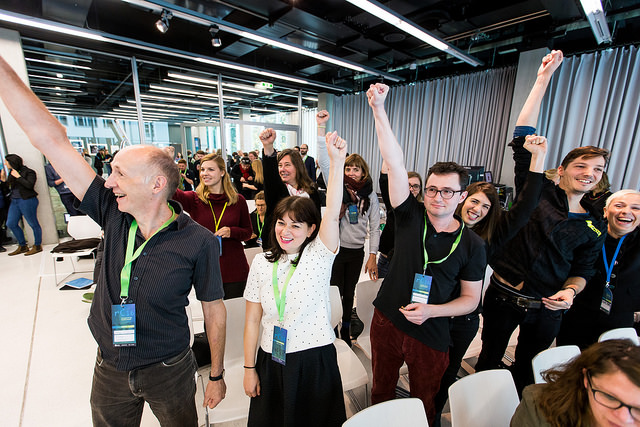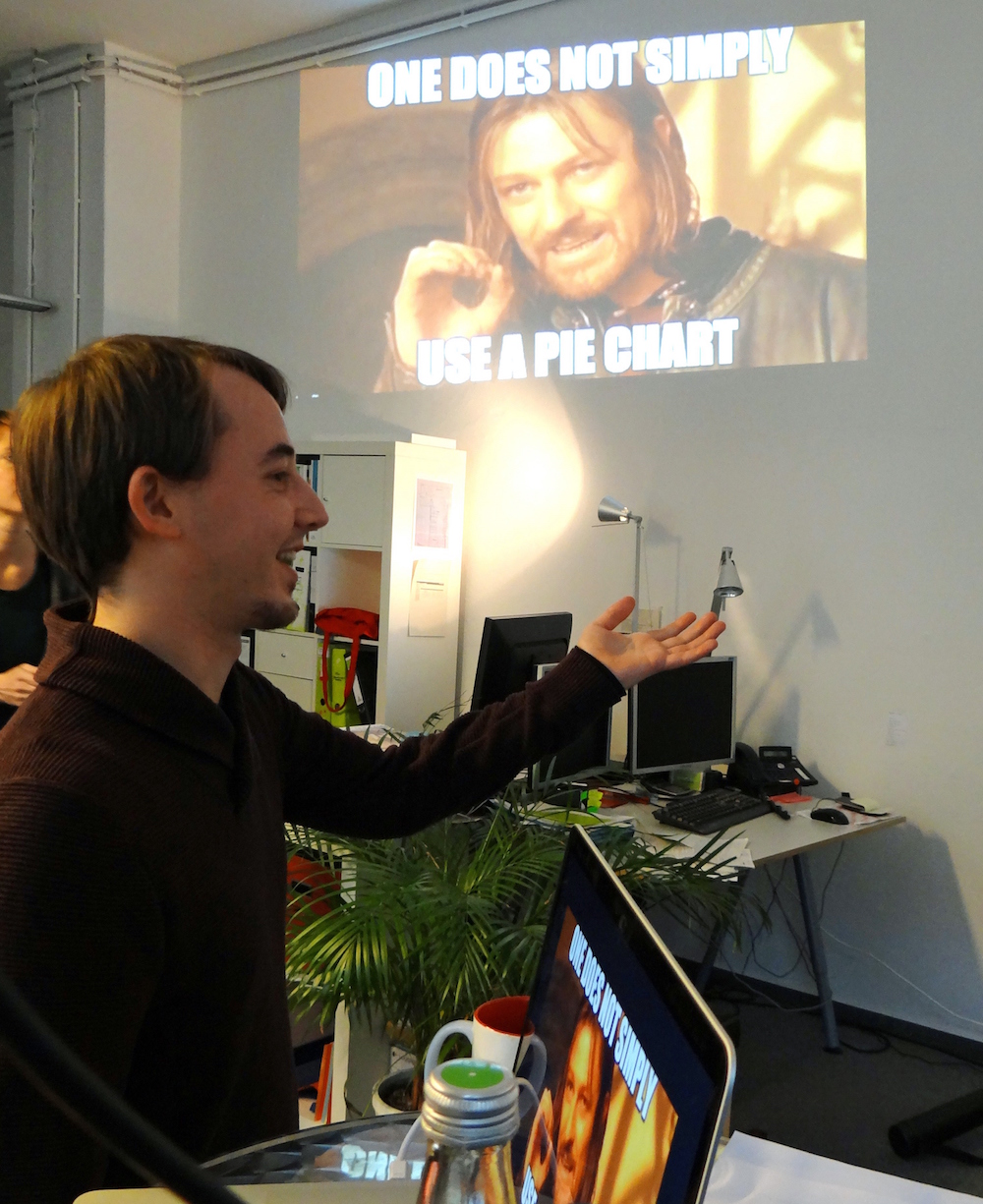CC-BY 3.0, Camila Salazar, Datenschule, Foto: Helene Hahn
What does it mean to become ‘data literate’? Where do you start and how can you use data within your work and projects? To explore these questions, we like to introduce some of our community members and data activists from around the world, who ended up working with data at some point in their lives. We were curious about how they actually got started and - looking back now - what they would recommend to data newbies.
Each month we will publish a new interview and introduce activists from our community who are working on data-driven projekts for social good. This is nr. #1.
Who: Data-Journalist from Costa Rica, working at the newsroom La Nación, data trainer at School of Data
Topics: data-driven stories on society, economics, politics
Tweets: @milamila07
Hi Camila, please introduce yourself.
My name is Camila, I’m from Costa Rica and I’m a data journalist and an economist. I’m currently working at a newspaper called La Nación in the data unit. I’m also involved with the School of Data community and started as a fellow in 2015. This was the year when I started running data trainings and workshops. I was trying to build a community around data in Costa Rica, in Latin America, also a bit in Mexico and South America.
When was the first time, when you came across data, when did you start to use data in your work?
I started studying journalism, but after my second year I was disappointed about the university and I wasn’t really motivated. So I thought, maybe I could start studying something else besides journalism. I enrolled myself in Economics at my university and was taking two careers simultaneously. In Economics it’s all about numbers and I really liked it. But when I was about to finish journalism studies, I thought, do I want to be an economist and work in a bank or do I want to write stories? How could I combine both? That’s how I got involved in data journalism. I found that this was an area where you could combine both in a good way. So you can take all the methods and technical skills, that you acquire in an economic degree, and apply them to tell stories of public-interest, so that’s how I mix the both and now, it’s been good so far.
What topics and projects are you currently working on?
At the data unit at La Nación we don’t focus on one major topic, it differs every time. This year we ran projects about the municipal elections in Costa Rica. We collected data of the majors, that we’re running for the different counties. We also developed a project about live fact-checking the promises of the president. Every year he gives a speech about the situation in the country. We build a platform where you could follow the speech live and see, if the things that he has been saying were true or not. We tried to look for all kind of stories and narratives and see what kind of data is available on that topic. It could be a social topic, an economic one or else. Now we are working on a project around wages. Within our unit we had the liberty to choose our topics and to see what’s interesting.
How would you define data literacy?
I think to be data literate is to change the way you solve problems. You don’t have to be super pro in statistics. It’s a way you approach questions and the way you solve them. So for example, if you’re working in a social discipline, in economics or in science you are used to solve problems with certain scientific methods, you ask a questions, apply a method and then try to prove your point, you experiment a lot with data. That’s the way you become data literate. And this can work in any kind of fields, in data journalism, public policy, in economics, if you are trying to introduce better solutions to improve efficiency in your business. Data literacy is about changing your way of thinking. It’s about trying to prove things and trying to find solutions with numbers and data. It’s a way of making things more methodical and reproducible.
What would you recommend to someone interested in data, but who does not know where to start?
If you really don’t know anything about data, don’t worry, it’s not that hard to get started. There are many learning resources available online. For the start, I would try and look for projects of people who already work with data - to get inspired. Then you can look for tools online, for example, on schoolofdata.com, there are courses, there are links to projects and it’s a good way to start. Don’t be afraid, and if you want to go super pro - I encourage you to do this -, but it’s a process, you don’t need to expect to be modelling data in two weeks, but in two weeks you can learn the basics and start answering small questions with data.
Blog posts by Camila on School of Data
Melde dich bei unserem Newsletter an und erhalte monatlich Informationen über unsere Aktivitäten und Workshops.
 Strategien für den digitalen Wandel - Schön war...
Strategien für den digitalen Wandel - Schön war... Auf der reCampaign diskutierten Campaigner/innen aus der Zivilgesellschaft und der Kommunikationsbranche über gesellschaftspolitische Themen und tauschen...
 Schuldaten analysieren - Rückblick zu unseren Workshops mit...
Schuldaten analysieren - Rückblick zu unseren Workshops mit... Bei unserem aktuellen Projekt mit BildungsCent e.V. möchten wir Informationen über Schulen in Deutschland transparent aufbereiten....